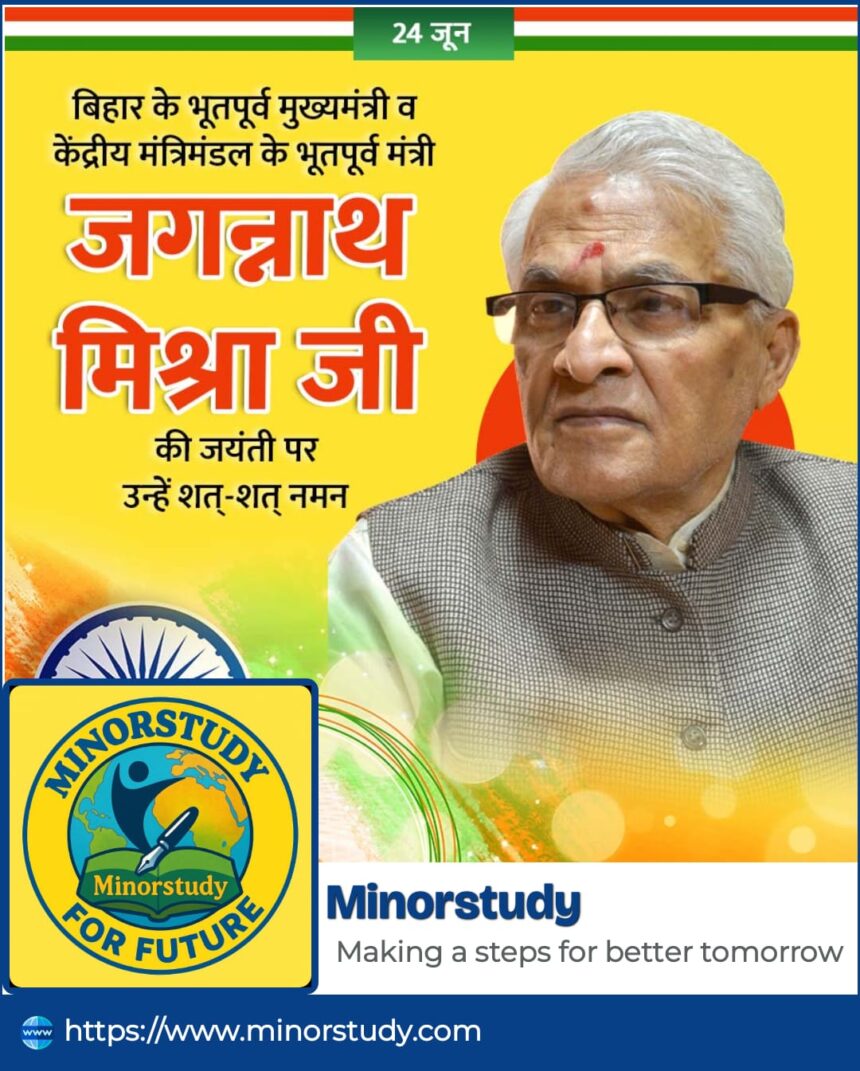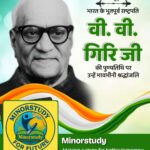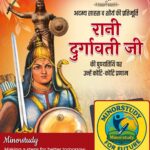Jagannath Mishra Ji biography, Bihar CM legacy, Fodder Scam, Urdu in Bihar, Jagannath Mishra significance
Explore the inspiring political journey of Dr. Jagannath Mishra — the 3-time Chief Minister of Bihar and a national leader whose legacy continues to influence India’s political and educational landscape.
- 🧑🏫 Introduction: Who Was Dr. Jagannath Mishra?
- 📘 Historical Background: Early Life and Education
- 📜 Timeline of Key Events in His Life
- 📊 Notable Facts About Dr. Jagannath Mishra
- 🪔 Significance of His Life and Work
- 🔹 Political Stability During Unrest
- 🔹 Educational Reforms
- 🔹 Cultural Inclusiveness
- 🔹 Pro-Teacher & Pro-Labor Approach
- 🔹 Defending Federal Values
- 🌿 How He Is Remembered Today
- 🎉 Wishes and Tributes to Dr. Jagannath Mishra Ji
- ❓ FAQs About Jagannath Mishra Ji
- 🧩 Important Points to Remember
- 🧠 Why His Legacy Still Impacts Daily Life
- ⚖️ Final Reflection: Jagannath Mishra — A Complex Yet Visionary Leader
🧑🏫 Introduction: Who Was Dr. Jagannath Mishra?
Dr. Jagannath Mishra was an Indian economist, academician, and three-time Chief Minister of Bihar known for his influential role in both state and national politics. Born on June 24, 1937, he served Bihar during turbulent and transitional phases, leaving behind a complex yet impactful legacy.
A man of deep political instincts and scholarly achievements, Dr. Mishra was often referred to as “Maulana Mishra” for his inclusive appeal across religious lines. His political life spanned decades, filled with achievements, controversies, and a consistent drive to uplift Bihar.
📘 Historical Background: Early Life and Education
Birth Date: June 24, 1937
Place: Balua Bazar, Darbhanga, Bihar
Family Legacy: Younger brother of Congress leader Lalit Narayan Mishra
Education: Doctorate in Economics
Profession: Professor at Bihar University before entering politics
Jagannath Mishra’s academic grounding gave him a visionary edge in governance. His initial career in academia helped him understand the challenges of common people from an economic and sociological lens.
📜 Timeline of Key Events in His Life
| Year | Milestone |
|---|---|
| 1937 | Born in Darbhanga, Bihar |
| 1975 | Became Chief Minister of Bihar for the 1st time |
| 1980 | Served second term as Bihar CM |
| 1989 | Became Chief Minister for the third time |
| 1990s | Got entangled in the Fodder Scam cases |
| 2013 | Convicted, but later acquitted by the High Court |
| 2019 | Passed away on August 19 in Delhi |
📊 Notable Facts About Dr. Jagannath Mishra
Only a few leaders in India served as CM thrice – Mishra was one of them.
Academic Turned Politician – He was a professor of economics before entering politics.
A Man of the Masses – Known for blending populism with reformism.
Introduced Urdu as a second official language in Bihar.
Fought for Teachers’ Rights – Championed the cause of school and college teachers.
Known as “Maulana Mishra” for his secular and inclusive policies.
Controversially linked to the Fodder Scam, but always claimed political targeting.
Awarded respect across party lines, including posthumous tributes from opponents.
Advocated for education as a primary tool of social transformation.
🪔 Significance of His Life and Work
🔹 Political Stability During Unrest
During the Emergency and post-Emergency period, Jagannath Mishra brought stability and administrative coherence in Bihar—a state often mired in political turmoil.
🔹 Educational Reforms
His tenure was marked by decisions in favor of educators and institutions, including granting recognition and salaries to thousands of teachers.
🔹 Cultural Inclusiveness
His decision to make Urdu the second official language of Bihar wasn’t just a political move—it was a strong step toward linguistic equality and religious harmony.
🔹 Pro-Teacher & Pro-Labor Approach
He regularized the services of over 1 lakh temporary teachers, earning lasting gratitude from the academic community.
🔹 Defending Federal Values
Despite being from the Congress, Mishra often opposed central overreach, defending Bihar’s regional identity and autonomy.
🌿 How He Is Remembered Today
Annual Birth and Death Anniversaries are observed by Congress and regional parties.
Educational Institutions in Bihar sometimes organize debates and seminars in his name.
He remains a symbol of secularism and grassroots politics for many.
🎉 Wishes and Tributes to Dr. Jagannath Mishra Ji
“Tributes to Dr. Jagannath Mishra Ji, the voice of Bihar’s common man and guardian of teachers.”
“Remembering the academician-politician who gave dignity to Bihar’s educators.”
“A leader who wore simplicity and conviction like a badge—salutations to Jagannath Mishra Ji.”
❓ FAQs About Jagannath Mishra Ji
Q1. Why is Jagannath Mishra called Maulana Mishra?
Due to his pro-Urdu and minority-friendly policies, he earned the nickname “Maulana Mishra.”
Q2. Was he ever convicted in the Fodder Scam?
Yes, he was convicted in 2013, but later acquitted by the Patna High Court in 2014.
Q3. How many times did he serve as Chief Minister of Bihar?
Three times – in 1975, 1980, and 1989.
Q4. What is his contribution to education?
He championed the cause of unaided educational institutions and teacher regularization.
Q5. Did he serve at the national level?
Yes, he also served as a Union Cabinet Minister for Agriculture under P.V. Narasimha Rao.
🧩 Important Points to Remember
A leader with scholarly depth and mass connection
Advocated for inclusive governance and secular values
Balanced populism with administrative reform
Despite controversies, his contributions to education and governance are widely respected
Left behind a legacy of political courage and educational upliftment
🧠 Why His Legacy Still Impacts Daily Life
Teachers in Bihar still benefit from policies he framed decades ago.
Language politics in Bihar was reshaped through his Urdu policy.
Inclusive political strategies he used are echoed in today’s Bihar politics.
His life story is part of civics and political science education in several universities.
His model of scholar-politician is rare and still inspiring to youth.
⚖️ Final Reflection: Jagannath Mishra — A Complex Yet Visionary Leader
Dr. Jagannath Mishra Ji’s journey is a blend of idealism and pragmatism, achievement and controversy, mass appeal and policy depth. His story teaches us that even amidst turbulent politics, principled leadership and people-first governance can shape a state’s future.
He was not just a politician but a professor with a conscience, a secularist in polarizing times, and a reformer who fought for dignity and rights.








